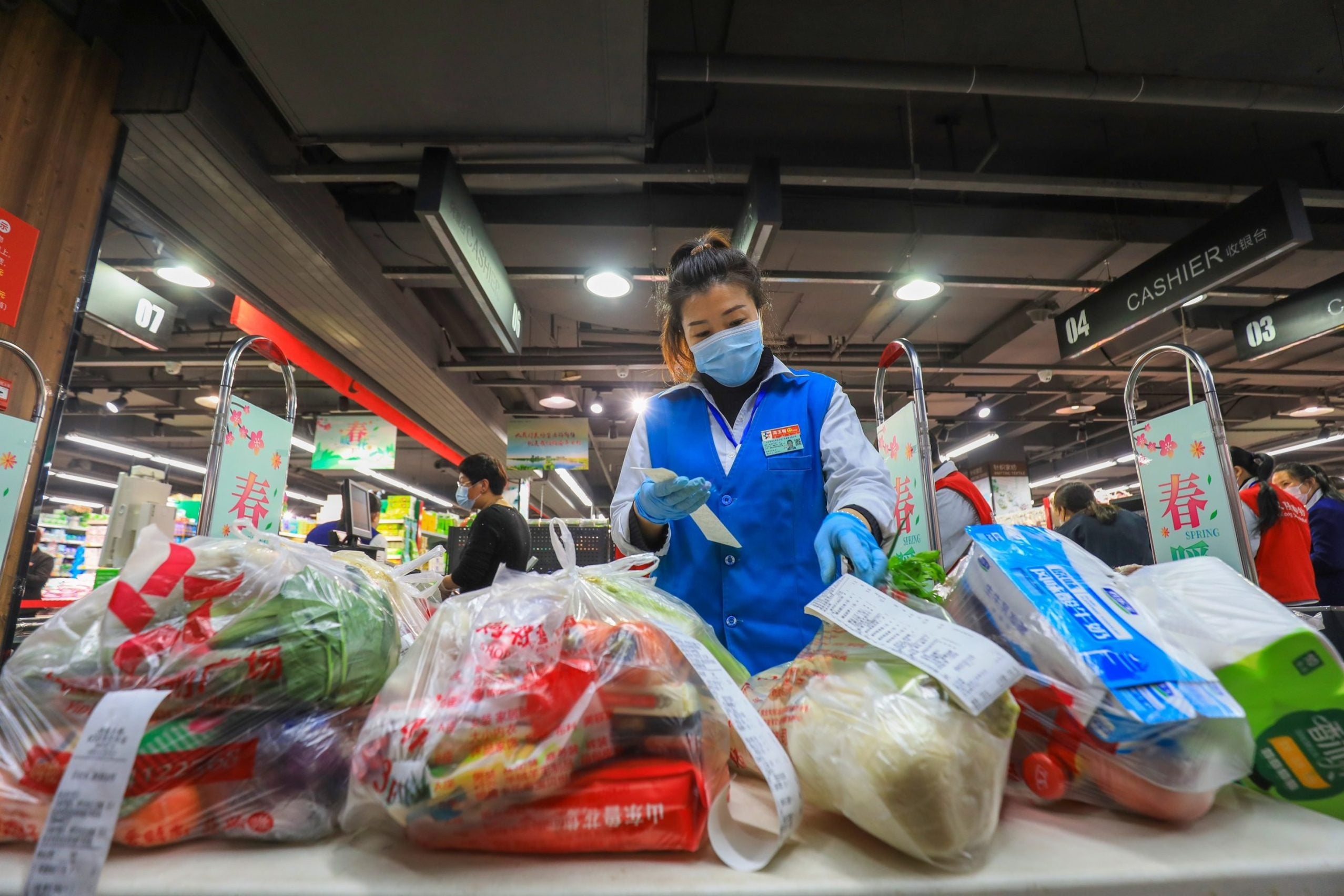
Until social unrest in November forced China’s Communist Party to abandon its tough Covid-19 controls, the country’s packaged food industry seemed in decent shape to produce solid growth in 2023.
Data from China’s National Bureau of Statistics showed the cumulative retail value of grain, oil and food products produced in China were worth CNY903.2bn (US$130bn) in the first half of 2022, up 9.9% year-on-year. But this was before protests erupted across the country and Beijing abandoned its stringent zero-Covid policy, sparking surging infections that will challenge the Chinese economy in this new year.
A spokesperson for Danone shortly before Christmas told Just Food that “on consumption patterns, the current sanitary situation in China makes consumer trends quite unpredictable at the moment”. China’s official data continue to show low infection figures and few deaths despite media reports hospitals and morgues are overwhelmed.
That uncertainty is underlined by the fact some observers believe the lifting of the strict controls on movement could in fact boost the economy, despite the resulting increase in infections. Dan Wang, the chief economist at Hang Seng Bank (China), predicts economic activities will start to return to normal after an initial few months of surging infections. “Catering, tourism, entertainment, business travelling and events, which were depressed the most during lockdowns, will be among the first to revive,” Wang says, boosting packaged retail food sales.
Chim Lee, a China/Asia analyst for the UK-based Economist Intelligence Unit (EIU), predicts the end of China’s zero-Covid policy will have a mixed but – ultimately – net-positive impact on packaged food sales. Lee notes that, relative to other retail categories, food sales were a bright spot in 2022, as the packaged food industry benefited from people stockpiling food in anticipation of lockdowns and other restrictions on mobility. Lee, however, emphasises how the impact has been mixed across categories.
“Over the last few quarters, [parts of] the sector – such as some snack brands – has been suffering from weak consumer sentiment as China’s economic outlook deteriorated under the ‘Zero Covid’ policy but China’s exit from Zero Covid will lead to a recovery in consumer confidence, which will likely benefit the sector eventually, although the short-term effect could be a bit shaky as people stop hoarding packaged food,” added Lee.
Research and intelligence company group GlobalData – Just Food’s parent company – is also bullish, noting the overall value sales of packaged food in China crossed the US$1trn milestone in 2022, with an increase projected in 2023. GlobalData says meat, dairy, soy, bakery and cereals are set to be the largest categories in 2023, contributing well over half of overall packaged food sales in China by value.
“As consumers learn to live with Covid-19, economic and social activity will improve steadily in the second half of 2023,” says Bobby Verghese, a consumer analyst at GlobalData.
“After nearly three years of financial and psychological stress due to the intermittent pandemic control measures, the recall of the Zero Covid policy will unleash pent-up demand, powering up China’s consumption engine. “The upcoming Chinese New Year festival celebrations will be a bellwether for consumer sentiment and business confidence.”
Guiyang-based Hua Chuang Securities, which mainly offers bank investment, asset management and securities brokerage, has noted in Chinese-language stocks analysis service Stockstar that although some of the major names in China’s food and beverage industry saw pressure on profits due to the pandemic, their revenue has expanded steadily. That said, it added there has been some rationalisation seen in parts of the sector. The brokerage, meanwhile, said the pressure seen on the costs of inputs such as packaging materials, edible oil and sugar has eased, giving packaged food companies more flexibility heading into 2023.
Citing a recent survey conducted among several securities brokerages, Stockstar found that a total of 30 food stocks traded on Chinese bourses achieved growth in net profits in 2022. It singled out Guangxi-based Yanjin Shop Food, which mainly manufactures and sells snack foods containing nuts, tropical fruits and marine products for its year-on-year profit growth (up 102.3%). The service also highlighted three other companies: Sichuan-based Teway Food Group, which mainly manufactures hot pot ingredients (for the home-based cooking of tabletop hot pot recipes), seasonings and condiments; Shandong-based Delisi Food, which mainly processes and sells meat products; and Shanghai-based dairy-maker Milkground (each exceeding 70% year-on-year profit growth).
Even as China pursued its Zero Covid policy and implemented sporadic lockdowns across major conurbations, the country’s packaged food industry still attracted investment in the last 12 months.
Multinational cheese maker Bel snapped up 70% of Chinese cheese maker Shandong Junjun Cheese Co. Bubs Australia entered into a venture for infant-formula production in China, while Thai Union Group set out plans to invest in China’s pet food market. Major south-east Asian dairy group Vinamilk invested in its domestic production in part to help support exports to China.
Research by GlobalData suggests there was a dip in deal-making in China last year but some observers suggest the country’s packaged food sector may be headed into a period of consolidation, as the shift away from Zero Covid could cause issues along the supply chain and upend consumer demand patterns.
“There is going to be quite a bit of disruption to the supply chain with workers becoming sick on production lines and last-mile delivery is having some major challenges at the moment,” Ben Cavender, managing director at the Shanghai-based China Market Research Group, says. “In general, the overall situation should benefit the larger players who have better funding to weather a very disjointed consumer market over the next one to two quarters and who tend to have better distribution and ability to get products into home pantries.
“I think right now it’s very hard to say how things are going to land for the various market players as there are a lot of unanswered questions regarding both the supply chain as well as consumers.”
